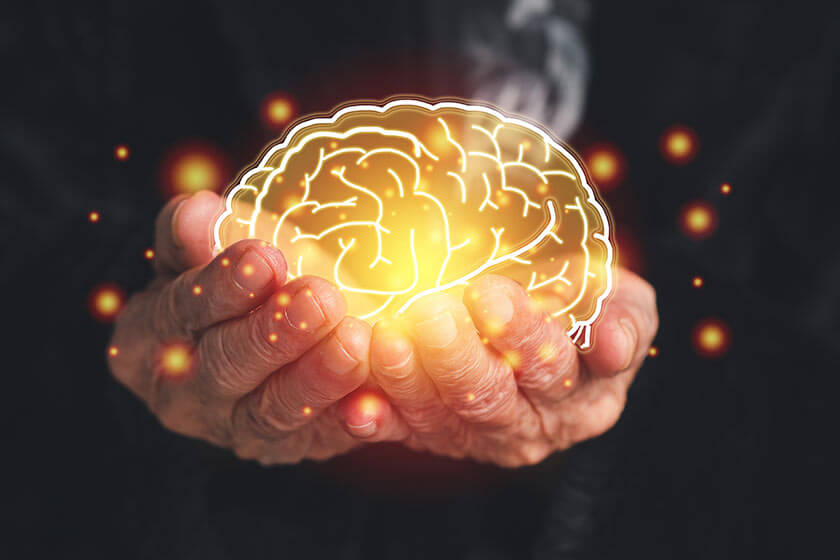The subtle slips began insidiously. Forgetting where I placed my keys, struggling to recall names that once felt familiar, the nagging feeling of words just beyond my grasp. As the frequency increased, a quiet unease settled in. The fear of cognitive decline, a concern that looms larger with each passing year, began to feel less like a distant threat and more like a looming shadow. It wasn’t until I discovered a seemingly simple bedtime ritual – one cup of a carefully chosen mix – that I began to feel a tangible shift, a subtle strengthening of the mental pathways I feared were fading. This wasn’t a miracle cure, but rather a consistent, gentle practice that became an unexpected ally in my personal fight against memory decline.
Intrigued? I understand. The notion of a nightly beverage offering cognitive protection might sound like wishful thinking, often overshadowed by more complex and sometimes daunting approaches to brain health. However, this isn’t about a revolutionary discovery. Instead, it’s about harnessing the synergistic power of specific, readily available ingredients consumed at a strategic time to support the brain’s natural processes of repair, consolidation, and protection against age-related cognitive decline.
My journey began with a deep dive into the science of brain health. I devoured research on neuroprotective compounds, the importance of sleep for cognitive function, and the impact of inflammation on the aging brain. It was through this exploration that I began to identify a constellation of natural ingredients, each with potential benefits for memory and cognitive function. The idea of combining these into a soothing bedtime ritual took root, a way to proactively nourish my brain as I slept.
After careful consideration and some personal experimentation, I arrived at a simple yet potent bedtime blend. It wasn’t about exotic superfoods or complicated preparations. Instead, it focused on accessible ingredients, each chosen for its potential to contribute to cognitive well-being.
The Key Components of My Bedtime Memory-Supporting Mix:
- Warm Milk (or Plant-Based Alternative): The creamy base of this mix provides comfort and a source of tryptophan, an amino acid that can aid in the production of serotonin and melatonin, neurotransmitters crucial for sleep regulation. Quality sleep, as we know, is vital for memory consolidation.
- Turmeric with Black Pepper: This golden spice contains curcumin, a powerful antioxidant and anti-inflammatory compound that has shown promise in preclinical studies for its potential to protect against neurodegenerative processes associated with memory decline. Black pepper enhances the bioavailability of curcumin, allowing the body to absorb its benefits more effectively.
- Cinnamon: Beyond its warm and comforting flavor, cinnamon possesses antioxidant and anti-inflammatory properties. Some research suggests it may also help regulate blood sugar levels, which can have a positive impact on cognitive function.
- A Teaspoon of Raw Honey: A touch of natural sweetness, raw honey also contains antioxidants and may have neuroprotective effects. Its gentle rise in blood sugar can also support the liver’s overnight function.
- A Pinch of Nutmeg: In small amounts, nutmeg has been traditionally used for its calming properties and may possess compounds that support brain health.
The Evening Ritual and the Subtle Strengthening:
The preparation became a mindful part of my evening routine, about an hour before I intended to sleep. The warmth of the milk, the earthy aroma of turmeric and cinnamon, created a sensory experience that signaled winding down for the night. I would sip it slowly, allowing myself to relax and mentally prepare for sleep, envisioning the ingredients working gently to support my brain.
Initially, my primary focus was on establishing a calming bedtime routine to improve sleep quality. However, over the subsequent months, I began to notice subtle but encouraging changes in my cognitive function. The frequency of those frustrating memory slips seemed to lessen. Recalling names became a little easier, and the feeling of mental fog began to dissipate. It wasn’t a dramatic overnight transformation, but a gradual sense of improved clarity and a feeling that my mental sharpness was being preserved.
Potential Mechanisms Behind the Benefits:
While my experience is anecdotal, the ingredients in this bedtime mix have scientific backing for their potential cognitive benefits:
- Improved Sleep: The tryptophan in milk can support better sleep, which is crucial for memory consolidation and overall brain health.
- Reduced Inflammation and Oxidative Stress: Curcumin in turmeric and antioxidants in cinnamon and honey may help combat inflammation and oxidative stress in the brain, key factors in neurodegenerative processes.
- Blood Sugar Regulation: Cinnamon’s potential to help regulate blood sugar can contribute to stable energy levels for the brain.
- Potential Neuroprotection: Some components in these ingredients have shown promise in preclinical studies for their ability to protect brain cells.
Important Considerations and Disclaimer:
It is crucial to emphasize that this bedtime mix is not a proven cure for memory decline, and my experience is personal. Memory loss can have various underlying causes, and it is essential to consult with a healthcare professional for any concerns about cognitive decline. This bedtime ritual should be considered a supportive element within a broader approach to brain health, which includes a balanced diet, regular physical activity, mental stimulation, and stress management.
Furthermore, individual responses to these ingredients may vary. Some individuals may have allergies or sensitivities. It is always advisable to listen to your body and consult with a doctor or nutritionist if you have any concerns.
My Ongoing Commitment:
This simple bedtime ritual has become a cherished part of my evening routine, a small act of self-care dedicated to nurturing my cognitive well-being. It’s a reminder that proactive steps, even seemingly small ones, can contribute to the long-term health of our minds. While the fight against memory decline is an ongoing journey, this unexpected evening elixir has become a comforting and potentially beneficial ally, offering a sense of empowerment and a gentle nudge towards preserving the precious gift of memory.









